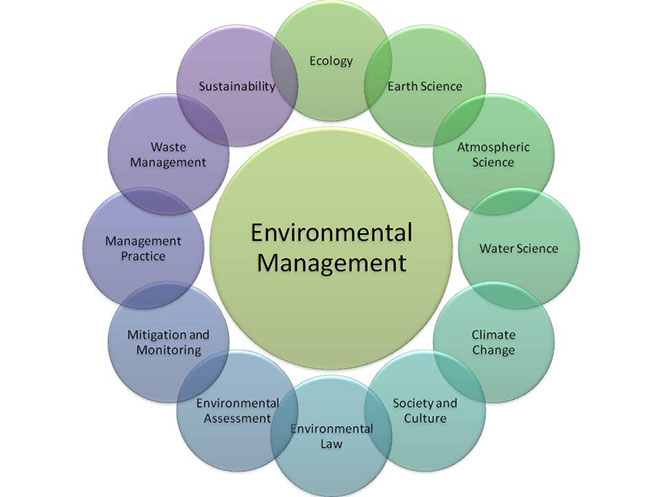Course Details
Your Growth, Our Mission

Course Description
Improving Environmental Performance starts by environmental impact assessment of the organization to include air, industrial and water waste, noise, and the effect of the day to day activities on the employees, the public, and the environment.
Where effects are identified that are unacceptable, these can then be avoided or reduced during the design process. The Environmental Impact Assessment procedure commences at the project design stage where it is decided whether an Environmental management beyond the current practice is required.
Environmental responsibility is rapidly becoming an important concern for all organizations. Businesses of the future need to demonstrate how efficiently they manage environmental risks and satisfy the needs of a diverse range of stakeholders, suppliers, the community and government authorities. Implementation and sustaining an environmental management system can deliver positive outcomes and ultimately cost savings.
Environmental management provides a practical framework for organizations to manage potential and existing environmental risks. It easily integrates into the business management structure to control the impacts which the activities, operations, products and services have on the environment.
The Training Course Will Highlight ?
Training Objective
Target Audience
Managers and Supervisors in all workplace environments.
Training Methods
This interactive training/workshop provides intense learning opportunities provided through wide ranging discussions, live audit scenarios, presentations, related videos, group workshops, etc. The course characterizes sustained interest, enthusiasm and participation displayed by the participants throughout the program.
Daily Agenda
- National Ambient Air Quality Standards (NAAQS)
- The Clean Air Act (CAA)
- Air Pollutants
- Global Atmospheric Protection
- Health and Ecosystem Protection
- Indoor Air
- Stack Emission
- Health and Safety
- Stack Emission Monitoring Principles
- Planning and Factors Affecting the Monitoring Process
- Commonly Measured Pollutants
- Equipment Suitability and Fitness for Purpose
- Standard Methods
- Wastewater
- Overview of Waste Water Treatment
- Parameters by Which Waste Water is Measured
- Biological Treatment of Waste Waters
- Activated Sludge (Suspended Growth) Processes
- Biofilm (Attached Growth) Processes
- Nutrient Removal Processes
- Groundwater
- Aquifers
- Water Cycle
- Overview
- Overdraft
- Subsidence
- Seawater Intrusion
- Mining
- Pollution
- Strategic Noise Mapping
- Overview of the Strategic Noise Mapping Process
- Define Areas to be Mapped
- Methods of Assessment
- Develop Noise Model Datasets
- Noise Level Calculations
- Post Processing and Analysis
- Reporting Requirements
- Industrial Waste Management
- Classification of Waste
- Residual Waste
- Minimum Pre-Treatment Obligations
- Pretreatment of Industrial Waste
- Validation of Pre-Treatment
- Flow Equalization
- Ph Neutralization
- Heavy Metals
- Organic Constituents
- Management System and Audit Scheme
- Operational Control
- Environmental Management Documentation and Records
- Waste Disposal Sites
- Landfill Monitoring
- Monitoring Program
- Groundwater
- Leachate
- Landfill Gas
- Quality Assurance/Quality Control
- Fundamentals of Environmental Impact Assessment (EIA)
- EIA Stages
- Screening
- Scoping
- On-going Scoping
- Conditions and Monitoring
- EIA Issues
- Impartiality
- Health & Safety
- Alternatives
- Availability of Documents
- Appropriate Evaluation
- EIA Preparation
- Description of the Proposed Development
- Description of the Existing Environment
- Description of the Likely Significant Impacts
- Description of Mitigation Measures.
- Environmental Topics
- Human Beings
- Fauna
- Flora
- Soils & Geology
- Water
- Air
- Air Dispersion Modeling
- Atmospheric Parameters
- Gaussian Dispersion Equations
- Dispersion Coefficients
- Plume Rise
- Time-Averaging of Concentrations
- Wind Velocity Profiles
- Calculating Stack Gas Plume Dispersion
- Trapped Plumes
- Fumigation
- Meteorological Data
- Calculation of Flare Stack Plume Rise
Accreditation
BTS attendance certificate will be issued to all attendees completing minimum of 80% of the total course duration.
Quick Enquiry
Request Info
Related Courses
Your Growth, Our Mission

